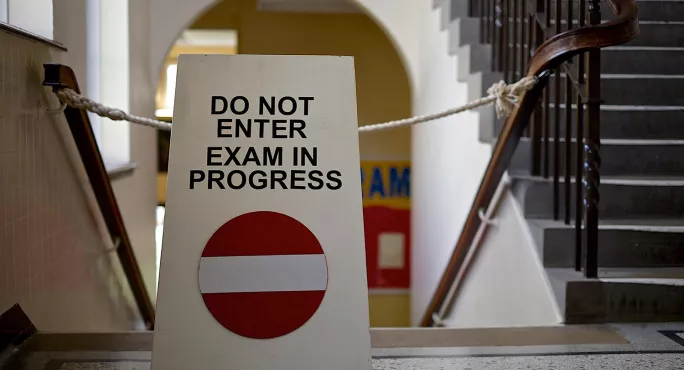‘There’s absolutely no evidence that IGCSEs are easier’
Share
‘There’s absolutely no evidence that IGCSEs are easier’
Here we go again! Private schools stand accused of “cheating the GCSE system”. Labour MP and former shadow education secretary, Lucy Powell, professed herself outraged to learn, in answer to a parliamentary question, that 90 per cent of IGCSE entries in core subjects in 2018 were from private schools.
Like the Tory chairman of the Commons Education Select Committee, Robert Halfon, she proclaims that the government’s new GCSE exams set a higher standard for the 16+ exam. IGCSEs are by implication easier: thus, by using them (when state school pupils are no longer allowed to), Ms Powell claims private schools are “cheating the system to inflate their results”.
This is a non-story, because it’s baseless. The Department for Education’s spokes-robot burbled predictably: “International GCSEs have not been through the same regulatory approval and quality control as the new gold-standard GCSEs, which is why we no longer recognise international GCSEs in school performance tables.” To be sure, it’s government’s privilege to choose which qualifications it recognises.
But a new exam doesn’t become “gold-standard” just because the DfE says it is: not even when it’s created by decree from Michael Gove, and given a brand-spanking new grading system to boot. Just repeating something over and over again doesn’t make it true: and no evidence - not a shred - has been produced to demonstrate that IGCSEs are easier than the new GCSE.
The widespread UK use this century of the international alternative to GCSEs grew out of dissatisfaction with the old exam. Increasingly criticised for its formulaic, tick-box approach, its content gradually shrank and challenge diminished. The private sector, exploiting its freedom from government stricture, found a better alternative in the range of international qualifications that entrepreneurial exam boards were offering abroad. By repute they were significantly more challenging than the domestic GCSE, demanding greater depth, relying less on coursework and sitting most or all exams at the end.
As its own schools increasingly moved towards IGCSE, government set out to create its own new GCSE - which, apart from the new grading system, resembles many IGCSE exams.
Independents, cautious and painstaking in their choice of qualifications, are continuing to make significant use of IGCSEs: not in order to “game” any system but because subject specialists, given the freedom of independence, regard their challenge and content as providing a solid platform for subsequent A-level study. The introduction of the new domestic GCSE was rushed and, while doubts persist about marking quality, many independents are staying with the trusted IGCSE while the new exam beds in. Nonetheless, as GCSE gains credence, independents will switch to it in numbers.
Some critics appear to feel that everyone should be forced immediately to jump into government’s new system. I’ve never liked state monopolies and wouldn’t welcome one in regard to exams. If it’s unfair that independents have a choice when state schools don’t (though they can choose between exam boards), I’d recommend that government revert to recognising IGCSE, restoring to its own maintained schools and academies the choice they used to enjoy.
I’m unconvinced that those allegedly “more easily gained” IGCSE grades would in any case advantage university candidates from private schools. Sifting through applicants’ academic records, Higher Education institutions routinely differentiate between courses, boards, exams, grades and even school-types. The current problem, if indeed one exists, lies not in the choices independent schools make, but in Westminster’s control-freakish demand for conformity which, notwithstanding its rhetoric of granting schools’ freedoms, insists that its new exam becomes the only show in town.
Before we can readily accept its repeated assertions that GCSE is truly the new “gold-standard”, government should commission scientific research to establish the facts. While they’re at it, they should also check that the content is at least as challenging as IGCSE and provides an equally effective platform for further study beyond 16.
Until there is reliable evidence, self-appointed armchair experts should avoid accusing any group of schools of cheating.
Dr Bernard Trafford is a writer, educationalist, musician and former independent school headteacher. He tweets at @bernardtrafford




